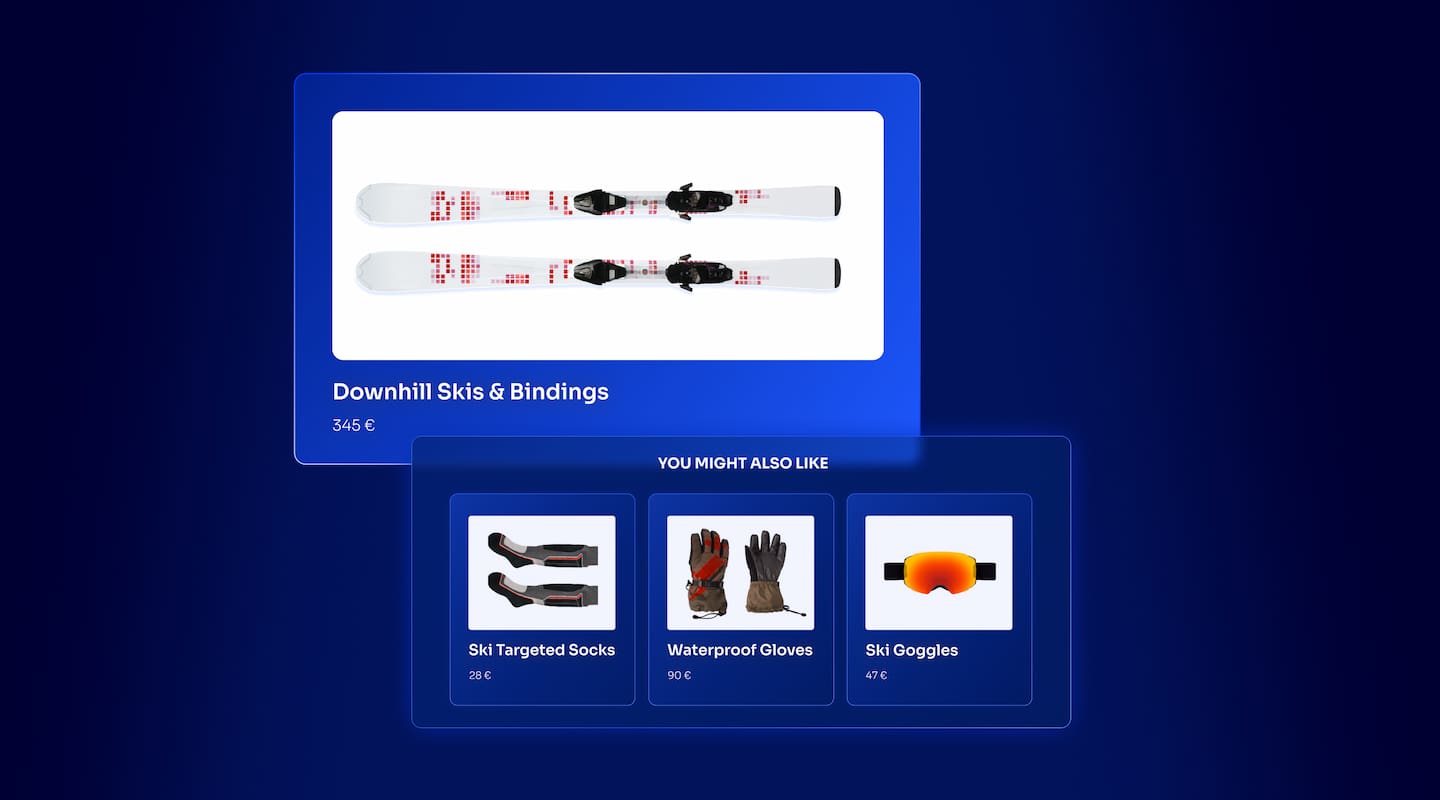Add InstantSearch and Autocomplete to your search experience in just 5 minutes
A good starting point for building a comprehensive search experience is a straightforward app template. When crafting your application’s ...
Senior Product Manager


A good starting point for building a comprehensive search experience is a straightforward app template. When crafting your application’s ...
Senior Product Manager

The inviting ecommerce website template that balances bright colors with plenty of white space. The stylized fonts for the headers ...
Search and Discovery writer

Imagine an online shopping experience designed to reflect your unique consumer needs and preferences — a digital world shaped completely around ...
Senior Digital Marketing Manager, SEO

Winter is here for those in the northern hemisphere, with thoughts drifting toward cozy blankets and mulled wine. But before ...
Sr. Developer Relations Engineer

What if there were a way to persuade shoppers who find your ecommerce site, ultimately making it to a product ...
Senior Digital Marketing Manager, SEO

This year a bunch of our engineers from our Sydney office attended GopherCon AU at University of Technology, Sydney, in ...
David Howden &
James Kozianski

Second only to personalization, conversational commerce has been a hot topic of conversation (pun intended) amongst retailers for the better ...
Principal, Klein4Retail

Algolia’s Recommend complements site search and discovery. As customers browse or search your site, dynamic recommendations encourage customers to ...
Frontend Engineer

Winter is coming, along with a bunch of houseguests. You want to replace your battered old sofa — after all, the ...
Search and Discovery writer

Search is a very complex problem Search is a complex problem that is hard to customize to a particular use ...
Co-founder & former CTO at Algolia

2%. That’s the average conversion rate for an online store. Unless you’re performing at Amazon’s promoted products ...
Senior Digital Marketing Manager, SEO

What’s a vector database? And how different is it than a regular-old traditional relational database? If you’re ...
Search and Discovery writer

How do you measure the success of a new feature? How do you test the impact? There are different ways ...
Senior Software Engineer

Algolia's advanced search capabilities pair seamlessly with iOS or Android Apps when using FlutterFlow. App development and search design ...
Sr. Developer Relations Engineer

In the midst of the Black Friday shopping frenzy, Algolia soared to new heights, setting new records and delivering an ...
Chief Executive Officer and Board Member at Algolia

When was your last online shopping trip, and how did it go? For consumers, it’s becoming arguably tougher to ...
Senior Digital Marketing Manager, SEO

Have you put your blood, sweat, and tears into perfecting your online store, only to see your conversion rates stuck ...
Senior Digital Marketing Manager, SEO

“Hello, how can I help you today?” This has to be the most tired, but nevertheless tried-and-true ...
Search and Discovery writer
While answering Algolia forum posts last week, I did a deep dive on Optional Filters for Algolia Search. Similar to filters and facet filters, optional filters are applied at query-time, allowing you to use all sorts of contextual information to improve results. Unlike the other filters, optional filters don’t remove records from the result set. Instead, they allow you to say, “If records match this filter, then move them up or down the ranking,” without changing the number of records returned.
Some interesting use cases:
You can use filters and facet filters to reduce the number of records in the result set at query-time, then optional filters to manipulate the rankings for the remaining records. You can even apply filter scoring to control the order of the records further.
Here’s an example that applies facet filters for product_type and price_range to an index from a Shopify store. The code selects the objectID of two records to promote, then injects them as optional filters into the query. If either of those products is part of the result set that matches the other criteria in the query, those products are pushed to the top of the ranking. The code uses filter scoring to ensure the featuredProduct will always appear above the alternateProduct.
import algoliasearch from 'algoliasearch';
const featuredProduct = '41469303161004';
const alternateProduct = '41469346644140';
const client = algoliasearch('H2M6B61JEG', 'b1bdfc3258823bb4468815a664dce649');
// Standard replica
const index = client.initIndex('shopify_algolia_products_price_asc_standard');
// with params
index.search(query, {
facetFilters: [[
"product_type:HardGood",
"price_range:75:100"
]],
optionalFilters: [[
`objectID:${featuredProduct}<score=500>`,
`objectID:${alternateProduct}<score=200>`
]],
hitsPerPage: 50,
}).then(({ hits }) => {
console.log(hits.map(item => `- ${item.title} | ${item.product_type} | ${item.objectID} | ${item.price_range}`).join('\n'));
});
Notice that this code uses a standard replica of the Shopify index sorted by price. Optional filters don’t play well with Virtual Replica indices since both re-rank records at query-time, leading to unpredictable results. If you plan to use optional filters, you should use a standard replica that applies ranking at index-time.
You can also use negative optional filters to push records down the ranking. For example, if you wanted to push posts written by the current user lower in the rankings but not remove them completely:
index.search('', {
filters: `date_timestamp > ${Math.floor(d.setDate(d.getDate() - 7) / 1000)}`,
optionalFilters: [
`author:-${user.name}`
],
hitsPerPage: 50,
}).then(({ hits }) => {
console.log(hits};
});
Optional filters are a powerful tool to add to your ranking tool belt, but remember that any query-time calculations will impact search performance. For instance, you shouldn’t use filter scoring on searches that may return more than 100,000 results. Always try to move ranking criteria to index configuration when possible. Use optional filters only when you need to further tune your results at query-time using more real-time context.
Let me know if you find a great (or not so great) use case for optional filters in your search UI!
Powered by Algolia Recommend